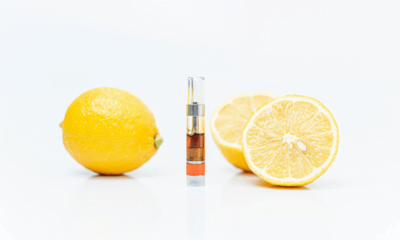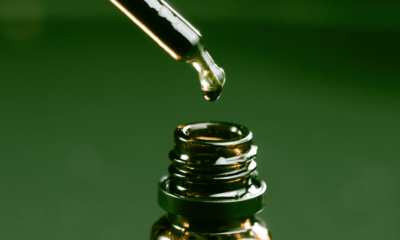As the use of CBD has soared, so too has the amount of misinformation out there.
Products and reviews containing lots of jargon-filled research and abbreviations often cause confusion among CBD newbies, which in turn contribute to a growing number of misconceptions about the cannabinoid.
Here, Cannabis Health busts five of the most common myths which often crop up online.
CBD is illegal
In short, no, it isn’t illegal. The cannabis plant produces over 140 different organic compounds – cannabinoids – of which only two are generally considered to be the primary active ingredients; cannabidiol (CBD) and tetrahydrocannabinol (THC).
THC is the only psychoactive component within the cannabis plant, which creates recreational cannabis’ trademark ‘high’. For this reason, the UK government has set a volume limit of 0.2 per cent for THC in medical cannabis – anything above this is illegal.
However, confusion over the two abbreviations has led many to believe CBD is also illegal.
All CBD is the same
For many CBD brands and creators, this misconception is likely the most frustrating.
For a start, CBD can be found in a variety of products, each varying greatly in terms of strength and potential benefits. For some, traditional methods of use such as oils and topicals may be preferred. But CBD is very much the opposite of ‘one size fits all’ and many users may feel no effect from these forms, opting for a product such as gummies instead.
CBD can also be purchased in various forms, from whole plant, full-spectrum products to CBD isolate.
There is no evidence to support CBD use
Perhaps the most damaging myth of all – there are many people who believe there is no scientific evidence to support the use of CBD.
While research into some specific areas may be lacking, on the whole, evidence to support the use of CBD has grown massively over the last decade, with more available to us now than ever.
From the effects of individual products to using CBD to alleviate symptoms of specific conditions, teams continue to research into CBD, with published knowledge now easily accessible.
CBD is a sedative
While one of the most highly-discussed – and highly-praised – benefits of CBD is that it can aid insomniacs and those with sleep issues; however, this doesn’t mean it’s a sedative. In fact, moderate doses of CBD are mildly energising.
Very high doses of CBD do have the potential to trigger a biphasic effect and can be sleep-promoting, but in CBD-rich cannabis flower, this is due to its myrcene-rich terpene profile, which has sedative and painkilling properties.
If you don’t notice the effects of CBD immediately, it won’t work for you
Like most medications and supplements, CBD will not provide instant relief – but that doesn’t mean you should give up.
The time it takes a product to work its way into your system is dependent on several factors, including the dosage, product type and the individual and their body.
For example, a few drops of CBD under your tongue will usually work much quicker than a dietary supplement, as it’s absorbed into your bloodstream much quicker.
It’s also important to remember that CBD isn’t an ultimate cure – your chronic aches and pains won’t disappear after a few days of use. Most users find the remedy most effective when they build up use until they find a dosage that suits them and use it regularly.

 News6 months ago
News6 months ago
 Science5 months ago
Science5 months ago
 Industry6 months ago
Industry6 months ago
 News6 months ago
News6 months ago
 News5 months ago
News5 months ago
 Health4 months ago
Health4 months ago
 News5 months ago
News5 months ago
 Health3 months ago
Health3 months ago












